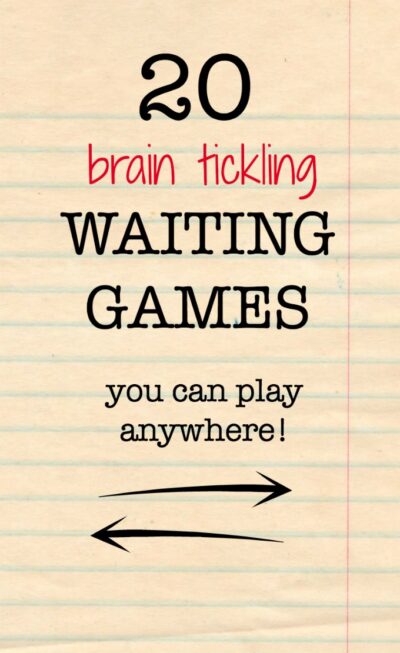Category Archives: Health Maintenance
The Uncharted Parenting Journey: COVID-19

Join Jonathan Purvis and Brittany Turner Purvis as they share how to reframe the narrative, right size expectations, process the Big Feelings, and ultimately focus on feelings of safety and connection…all with the intention of building resiliency in ourselves and in our children.
butler.hosted.panopto.com/Panopto/Pages/Viewer.aspx?id=f26423b8-cc07-4593-933c-ab97014d8daf
Storytelling Resources
Uplift, distraction, affirmation, and joy can be found many places. Oral storytellers can often soothe and reassure us that we are not alone. There are many resources to choose from including the following:
Humor for Tough Times
Using Humor (and Exercise) to get through Tough Times
Dealing with the seriousness of the COVID-19 epidemic is no laughing matter, but we all need to find ways to cope with COVID-19 limitations. A psychologist explains why laughter can help us through tough times.
Dealing with the seriousness of the COVID-19 epidemic is no laughing matter.
But we all need to find ways to cope with the limitations that COVID-19 has imposed on our personal lives.
Cleveland Clinic’s Scott Bea, PsyD, said during difficult times, it helps to laugh and share humor with the people we care about.
“Humor is considered to be a very sophisticated psychological defense against tension and threat, and so, I think doses of humor are good for us,” he said. “Humor is a way to activate good brain chemistry, and actually protect ourselves with better immune function – it is really good medicine.”
Dr. Bea recommends watching movies or shows with family and friends – even if we have to do it virtually.
Tuning in to late-night comedy programs can help ease tension, and strengthen bonds – especially when we’re being asked to spend time apart from those we love.
“Humor is kind of a bonding activity, so it’s shared experience – rarely do we experience it in isolation,” said Dr. Bea. “It’s one of those things that can be shared.”
Likewise, Dr. Bea believes finding a way to exercise can be especially helpful to boost your mood.
He said getting out into the fresh air, walking the dog, engaging in outdoor activities – at some distance, of course, is a good idea.
“Find a way to exercise. We know exercise is useful for our physical well-being and our emotional well-being,” said Dr. Bea. “There’s great research on physical exertion being a good treatment for depression, and for anxiety as well.”
Dr. Bea reminds us that everyone is experiencing something disappointing right now, so now is the best time to keep caring about each other as deeply as we can.
https://newsroom.clevelandclinic.org/2020/03/31/using-humor-and-exercise-to-get-through-tough-times/
Washable Door Decor
This weekend,perhaps it’s time to “spring” up your decor and brighten the neighborhood at the same time. Make some washable window paint with what you may have on hand.
www.firstpalette.com/craft/easter-egg-sun-catchers.html


Current Situational Grief

In preparation for the blog this week, I found a most helpful article, “That Discomfort You’re Feeling is Grief.” There is such a pervasive feeling of lack of control of most everything normal and usual. The writer describes well, the various stages and faces of grief specific to our current situation. Small and simple actionable suggestions are offered.
Free Online Workout Access
Despite being confined and isolated, it is possible to maintain some level of fitness. There are free online workouts offering so many varied themes. Clear a little of your floor and add some movement to brighten your day. .
www.crossfit.com/at-home/workout-weighted-step-ups-burpees
Tips for Support Through Tough Times

Taking care of yourself, your friends, and your family can help you cope with stress. Helping others cope with their stress can also make your community stronger.
Things you can do to support yourself
- Take breaks from watching, reading, or listening to news stories, including social media. Hearing about the pandemic repeatedly can be upsetting.
- Take care of your body. Take deep breaths, stretch, or meditate. Try to eat healthy, well-balanced meals, exercise regularly, get plenty of sleep, and avoid alcohol and drugs.
- Make time to unwind. Try to do some other activities you enjoy. Many city parks have trails that are greening up nicely.
- Connect with others. Talk with people you trust about your concerns and how you are feeling.
- You may want to simplify cell phone messaging via mass text use. This can reduce the information overload while in emergency mode. Families and groups of friends can select a “point person” for contact . This contact number could be a designated land line in case of cell phone service disruptions.
- Have a hard copy of phone numbers (both cell and land-line) of loved ones, as well as emergency numbers.
- Make sure your ICE (In Case of Emergency) contact is updated on your cell phone.
Waiting Games
National Kidney Month: Protecting Kidney Health
Kidney disease is a major public health concern. Kidney disease often goes undetected until it is very advanced. Unfortunately, this is when someone would need dialysis or a transplant.
The key is to find kidney disease before the trouble starts. Regular testing for everyone is important, but it is especially important for people at risk.
Follow these 6 steps to learn more about kidney disease, your risk, and how to prevent it.
Step 1: Know These Facts
- Regulate the body’s fluid levels
- Filter wastes and toxins from the blood
- Release a hormone that regulates blood pressure
- Activate vitamin D to maintain healthy bones
- Release the hormone that directs production of red blood cells
- Keep blood minerals in balance (sodium, phosphorus, potassium)
- Heart disease
- Heart attack and stroke
- High blood pressure
- Put your life at risk
- Weak bones
- Nerve damage (neuropathy)
- Kidney failure (end-stage kidney disease, or ESRD)
- Anemia or low red blood cell count
Step 2: Assess Your Risk
- Diabetes (you or your family)
- High blood pressure (you or your family)
- Heart disease (you or your family
- Family history of kidney failure, diabetes, or high blood pressure
- Obesity
For additional information on worrisome symptoms and next steps:


